Storm Water Permitting
Storm Water Solutions
Understanding Stormwater Permits: Protecting Water Quality through Regulation and Compliance
Stormwater permits are regulatory documents issued by environmental agencies to manage the discharge of stormwater runoff from various sites, including industrial facilities, construction sites, and urban areas, into natural water bodies or storm sewer systems. These permits are part of the National Pollutant Discharge Elimination System (NPDES), established under the Clean Water Act in the United States, or equivalent regulations in other countries.
The purpose of stormwater permits is to reduce the pollution carried by stormwater runoff that can contaminate rivers, lakes, and coastal waters, thereby protecting water quality and promoting public health and environmental integrity. The permits typically require permit holders to implement specific measures to minimize the discharge of pollutants. These measures may include:
- Developing a Stormwater Pollution Prevention Plan (SWPPP): This plan identifies potential sources of pollution and outlines best management practices (BMPs) and control measures to reduce pollutants in stormwater discharges.
- Site Inspections and Monitoring: Regular inspections and monitoring of the site and stormwater discharge are required to ensure compliance with the permit conditions and the effectiveness of the implemented BMPs.
- Records Retention: Keeping detailed records of inspections, maintenance activities, and any corrective actions taken.
- Public Reporting: Some permits may require public reporting of monitoring results and compliance status.
- Employee Training: Training for employees on pollution prevention practices and spill response procedures.
There are different types of stormwater permits based on the nature of the activities at a site:
- Industrial Stormwater Permit (Multi-Sector General Permit – MSGP): For industrial facilities, outlining specific requirements based on the sector or type of industry.
- Construction General Permit (CGP): For construction sites that disturb one or more acres of land, or less if part of a larger common plan of development, requiring erosion and sediment controls, and pollution prevention measures.
- Municipal Separate Storm Sewer System (MS4) Permit: For urban and suburban areas, focusing on reducing pollutants in stormwater runoff from roads, municipal operations, and residential areas.
Obtaining and complying with a stormwater permit is essential for facilities and operations that can impact water quality through their stormwater runoff, ensuring they take steps to minimize environmental harm.
Construction General Permit (CGP)
The Construction General Permit (CGP) governs stormwater discharges from construction sites that disturb one or more acres of land, or smaller sites that are part of a larger common plan of development. This permit is crucial for managing the increased runoff and potential pollutant loads that result from soil disturbances and other construction-related activities. To comply with the CGP, operators must implement erosion and sediment controls, adhere to pollution prevention measures, and develop a site-specific SWPPP that outlines the actions to be taken to minimize sediment and contaminant discharge. The CGP aims to protect water bodies from the adverse effects of construction activities, promoting sustainable development practices that safeguard environmental health.
Municipal Separate Storm Sewer System (MS4) Permit
The Municipal Separate Storm Sewer System (MS4) Permit targets urban and suburban areas, focusing on reducing pollutants in stormwater runoff that is discharged into local waterways via municipal storm sewer systems. MS4 permits require municipalities to develop and implement comprehensive stormwater management programs that include public education, illicit discharge detection and elimination, construction site runoff control, post-construction stormwater management in new developments and redevelopments, and pollution prevention/good housekeeping for municipal operations. The overarching objective of the MS4 permit is to minimize the contribution of stormwater runoff to water pollution and degradation, thus enhancing the quality of urban water bodies and supporting community health and biodiversity.
Industrial Stormwater Permit (Multi-Sector General Permit – MSGP)
The Industrial Stormwater Permit, often referred to as the Multi-Sector General Permit (MSGP), is designed to regulate stormwater discharges from various industrial facilities. Tailored to address the unique environmental concerns associated with different industrial sectors, this permit delineates specific requirements and best management practices (BMPs) that must be implemented to minimize the discharge of pollutants into natural water bodies. Facilities covered by the MSGP are required to develop and implement a comprehensive Stormwater Pollution Prevention Plan (SWPPP), conduct regular monitoring of their stormwater discharges, and comply with reporting requirements. The goal is to mitigate the impact of industrial activities on water quality, ensuring that industrial runoff is managed in an environmentally responsible manner.
Storm Water Quality Permits (SWQ)
SWQ Permits, integral to the Texas Pollutant Discharge Elimination System (TPDES), are mandated by the State of Texas for managing stormwater quality. Essential for any project classified under “new development” or “significant redevelopment” as per the City of Houston Code of Ordinances (Sec. 47-601), these permits ensure that developments adhere to stringent environmental standards from inception through their operational lifespan, requiring annual renewals. The Harris County Commissioners Court, leveraging authority from the Texas Local Government Code Section 422, oversees the regulation, aiming to align with Harris County’s NPDES or TPDES stormwater permit objectives. The regulation’s core mission is to implement land use controls that not only comply with stormwater permit requirements but also safeguard human life and health while minimizing the escalation of pollutant levels in stormwater. It prohibits any new or significantly redeveloped projects within the unincorporated areas of Harris County from proceeding without securing an SWQ Permit or submitting an Industrial Activity Certification, underscoring the county’s commitment to environmental stewardship and the well-being of its communities.
